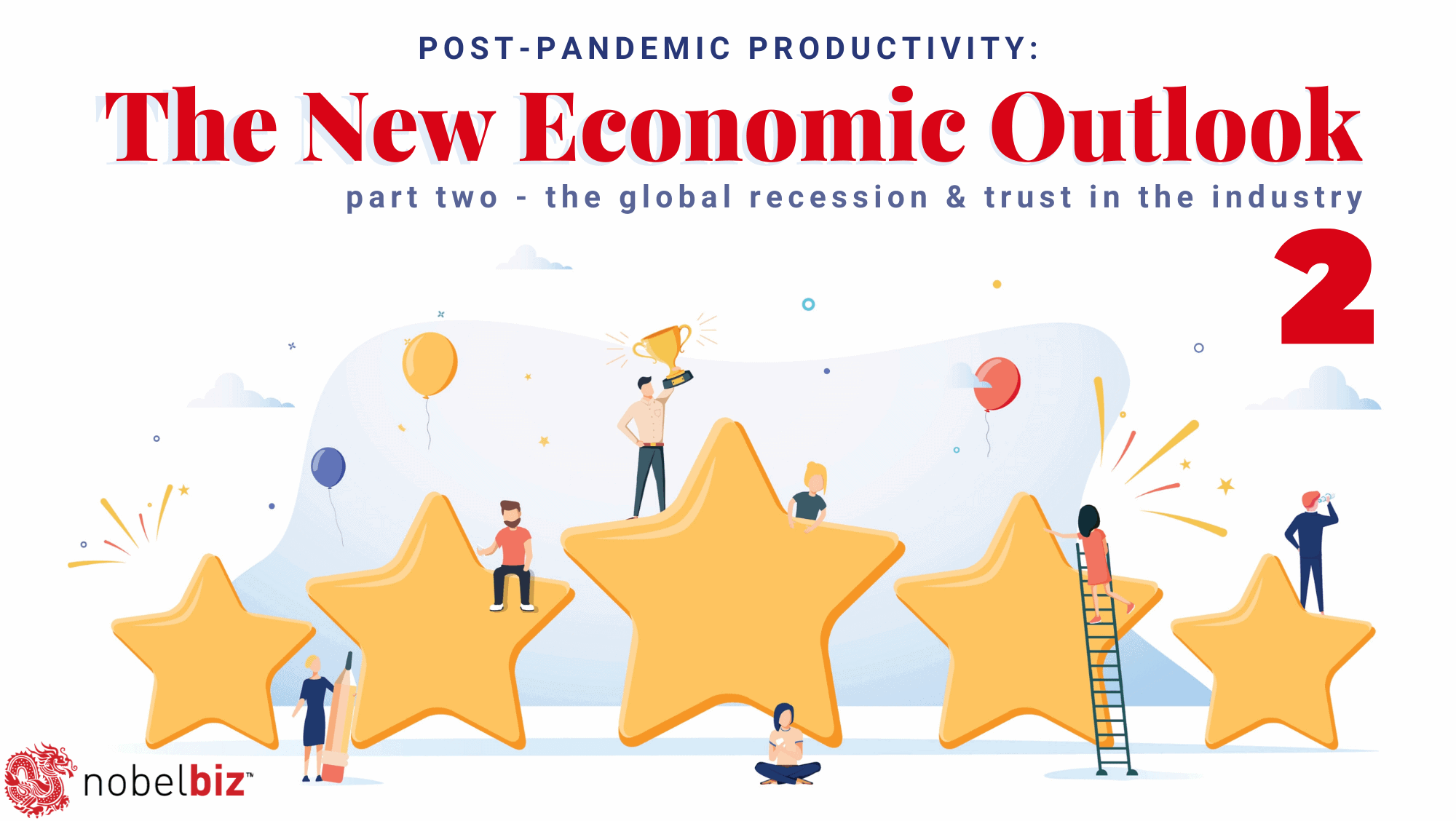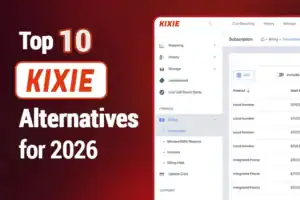In part one, we had an introduction – we talked about how things are looking for the global economic world, both from the perspective of our industry – contact centers, and the larger view of the consumer. We concluded that the hyperaware consumer might determine companies to employ a lot more care with regard to customer experience and support.
Now, we’re stepping back a bit, looking at how the global economic recession will affect us all, before zooming in a bit on the consumer again. Studies show a shift in consumer psychology – how we buy, what we buy when we buy, and most importantly in a pandemic – WHERE we buy.
Lastly, we’ll explore scam callers, since they’ve been having a field day during the COVID-19 outbreak, essentially destroying what little trust consumers had in our industry. How did we get here? What can we do? Can we do anything? Let’s find out!
The Global Recession Is Basically Here
COVID-19 was already plunging the global markets into a recession. Then, on May 25, 2020, the death of George Floyd sparked a movement, almost a revolution. Many big corporations are facing unprecedented backlash and losses over their attitude towards social justice and the lack of representation in their ranks.
Which cases are warranted and which are not is irrelevant. They are happening, and this is taking a further toll on the US economy and not only – companies in France, the UK, and other countries are facing similar scrutiny.
While this will undoubtedly further progress around equality and discussions about social justice, it also furthers the burden the global economy – already severely weakened – has to bear.
A June 2020 forecast by Global Economic Prospects, cited by the World Bank, shows a 5.2% contraction in global GDP in 2020. The same article projects a “multi-decade trend of slowing potential growth and productivity growth.”
The good news is businesses of all sizes are doubling down on customer experience and on customer loyalty and retention programs. I’ve seen this at the corner coffee shop – a level of care for me and my coffee that was unimaginable before the pandemic.
The Global Progression of Consumer Psychology
It is unsurprising, as such, that consumers demand more from the companies they offer their patronage to. Furthermore, the pandemic has reshaped how we buy and what we buy. A June 5, 2020, study by McKinsey highlights the following:
- Net consumer optimism has decreased. Simply put: consumers are not confident their finances will look much better over the following months, nor do they believe social isolation will be over soon.
- Consumers are no longer spending on anything that isn’t essential – with some exceptions.
- People are buying online more and prefer to avoid contact channels.
- People avoid traveling and other social activities, even in countries where the pandemic is largely over.
- The majority of consumers don’t listen to the government, but to medical experts. They won’t go out because the government says so, they are waiting for relevant milestones to be reported by experts.
- Consumers are looking for an ongoing emphasis on cleanliness and safety.
To this, considering what we just discussed and the situation in the US, I would add: - US consumers are demanding more transparency from the companies they make purchases from, especially if they care deeply about those companies and/or are very loyal.
- Consumers demand more personalized and efficient customer support that takes into account their financial situation and does not dismiss or diminish their needs.
- The general US public is fed up with negative experiences. And in particular robocalls, spam & scam calls – which directly impacts our industry.

The Anger and the Disgust:
How COVID-19 Spurred Renewed Hate for Scam Callers
A plethora of reports have surfaced showing just how ugly the practices of scam callers have gotten during the pandemic. And more and more scam calls are going out every day.
As we’ve discovered during a recent podcast episode here, the current efforts from the FCC, the FTC, and all the other agencies that can do something about it are not enough to stop scammers and robocalls.
Consumers are demanding an end to spam.
And rightly so – despite being industry professionals, we’re also consumers and we hate these calls as well. Even more than that – we understand how they’re made, and we know they’re giving our work and the work of legal entities within the industry a very bad name. So, we hate them even more.
Therefore, as an industry, we have to take ownership of these constant mistakes that we have allowed bad actors to make. And understand how we need to adapt our customer experience in the industries that might perhaps be similar to those of the scam callers.
Legitimate companies, charities, and governmental organizations that make frequent phone calls must take extra care to assure consumers of their good intentions or risk losing their business during a recession.

End of Part Two
Today we delved deep into how the economic recession will look, and how the psychology of the global consumer changes as a result of the pandemic. The conclusion is that every company, contact center or not, will need to work proactively to adapt and boost their post-pandemic productivity as a result of this new reality.
Lastly, we approached the topic of robocalls, scam calls, and fraud calls. These bad actors in our industry have significantly impacted trust during the troubling times that we’re still going through. The consequence of that is that legal actors now have to work extra on their customer experience and support, besides already working hard on the legal acrobatics required to overcome the many regulations of the industry.
IN PART THREE:
We theorize how customer experience looks in a post-COVID world, and how we would transition to a new normal. We also explain what this new normal might look like.
We use the research at our disposal to gauge what matters more for the consumers in the near future. How does B2C compare to B2B in this new environment?
Lastly, in our three-part series, we bring all the data together to determine how CX can empower businesses and contact centers, in particular, to move forward and be productive beyond the Pandemic.

Andrei is an experienced marketing professional specializing in propelling growth for both B2B and B2C companies. Proficient in streamlining marketing operations and enhancing lead and customer experiences through SEO and marketing techniques.






